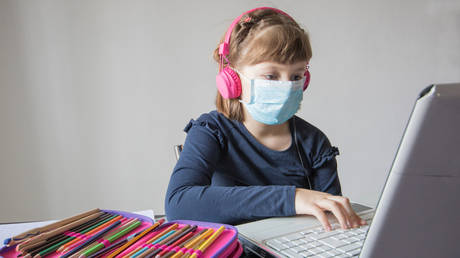
School closures have led to a loss of basic math and literacy skills and caused an array of mental health issues, the United Nations Children’s Fund said
The damage to children’s education during the Covid-19 pandemic is hard to offset, with many young people losing out on “basic numeracy and literacy skills” due to school closures, UNICEF said.
“Quite simply, we are looking at a nearly insurmountable scale of loss to children’s schooling,” said UNICEF Chief of Education Robert Jenkins in a statement on Monday.
“While the disruptions to learning must end, just reopening schools is not enough. Students need intensive support to recover lost education,” Jenkins claimed, adding that schools “must also go beyond places of learning to rebuild children’s mental and physical health, social development and nutrition.”
UNICEF claimed children have “lost basic numeracy and literacy skills” which they “would have acquired if they had been in the classroom,” while younger children are thought to be the most affected by a lack of in-person schooling.
The number of 10-year-olds in low- and middle-income countries who are unable to read or write rose by a whopping 17%, from 53% to 70%.
The damage is also thought to be universal, affecting children from Ethiopia and South Africa to Brazil and the United States.
UNICEF further warned that the closure of schools during the pandemic “impacted children’s mental health, reduced their access to a regular source of nutrition, and increased their risk of abuse.”
Over 370 million students missed out on school meals due to closures, which provided the only nutritious food to many impoverished children, while “high rates of anxiety and depression” have been recorded among children since the beginning of the pandemic in 2020 – with females most affected.
READ MORE: Schoolchildren told cloth masks no longer good enough




